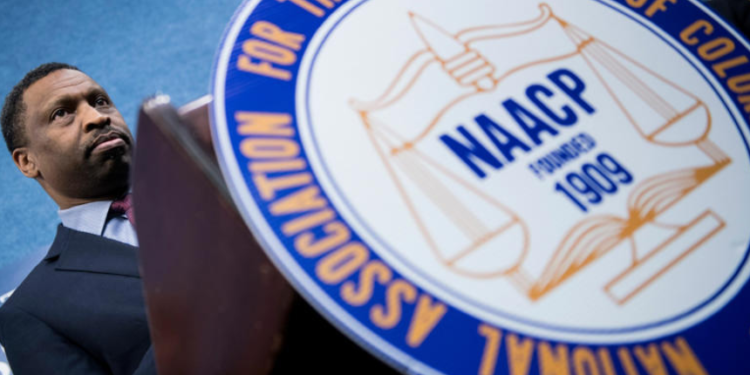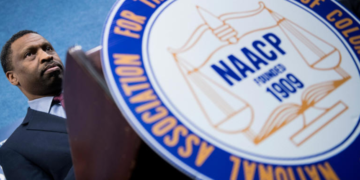April 3, 2025 Story by: Publisher
In an email sent over the weekend, leaders with Boulder County’s chapter of the NAACP said they’ve chosen to “dissolve” the chapter, citing “persistent retaliation from the City of Boulder.”
The announcement comes after months of infighting between the NAACP’s Boulder County chapter and City of Boulder leaders.The Boulder County leadership of the local NAACP chapter announced it will dissolve in a March 28 email. The parent organization is pushing back.
“This all started because of our objection to the hiring of the new police chief,” said Annett James, the now-former president of the NAACP Boulder County chapter.
James cited three main reasons she and other leaders with the chapter felt all they could do was dissolve the chapter.
“Why is the City of Boulder so invested in this person as the chief of police? They did a nationwide search only to get where they started to end, where they started?” she said. “The other question has been, why is it that the city felt so powerful that they could actually reach out to an organization, a national organization, to campaign complain about a unit in their town?
“The third question is one that we’re still trying to answer: why would a national civil rights organization in any way give credence to complaints from a city government for the reasons that we’ve just stated? So these are the things that the intellectuals of Boulder want to know, and rightfully so.”
James said Boulder Police Chief Stephen Redfearn’s connection to the Elijah McClain case ultimately bothered NAACP Boulder County chapter leaders.
In an email sent to NAACP Boulder County chapter members, leaders said, “The city manager, police leaders, and associated governmental entities have actively sought to suppress and undermine our efforts toward racial equity. These tactics, well-known for their authoritarian and racist nature, have included division, co-opting, isolation, spreading false rumors, character assassination, and threats of legal action,” adding they believe “the aim has been clear: to remove the leadership of NAACP Boulder and reshape our Branch into a powerless symbolic entity that serves the city’s interests rather than the community’s—one that provides mere performative gestures, a prop for inclusion, rather than real empowerment.”
A separate release from the national NAACP on April 1 refutes any claim of dissolution as “completely false,” stating “members cannot close NAACP Chapters. Per the NAACP Constitution, only the Board of Directors has that authority, and it has not voted to do so.”
In an April 2 phone call with Boulder Weekly, the group’s former vice president Judith Landsman says this isn’t true. The chapter “dissolved itself as an entity and filed for legal dissolution with the State of Colorado by unanimous decision of the former NAACP Boulder County executive committee.”
Landsman said no effort has been made by the State of Colorado to halt the dissolution. “As far as we know, it’s done. And if NAACP national wants to push it, then they’ll have to challenge it legally,” she said.
“We faced a relentless campaign from the city manager and police chief to discredit and undermine and ultimately destroy our branch,” the Boulder County NAACP said in its release, “because of our refusal to support the promotion of Stephen Redfearn to police chief or remain silent.”
The release also states the national NAACP succumbed to “the threat of legal action from the city,” issuing cease-and-desist letters regarding statements the local chapter had made against Redfearn.
In its own statement released March 29, the City of Boulder refutes any threat of legal action against the chapter, saying the statement is “simply untrue.”
According to the release, the Boulder County NAACP executive board voted unanimously to dissolve after the national NAACP expressed interest in taking over the branch.
In an April 2 Instagram post, city council member Taishya Adams expressed her discontent with the situation. “As a member of the NAACP Boulder County branch, I believe the entire membership should have been included in such a foundational decision to close our chapter,” Adams wrote. “I look forward [to] more clarification about the road ahead and continue to be open for the much needed repair within and across our Black identifying community and allies.”
Landsman is uncertain what comes next in the wake of the dissolution. “There is a void, and we can’t say who’s going to step up and when it’s going to happen,” she said.
Source: Denver 7

















